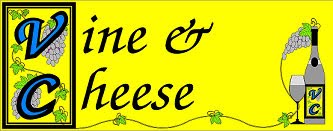Lettie Teagues, wine writer for the Wall Street Journal, is my favorite source for blogpost ideas. I just leaf through her old columns and something she has written clicks with a current theme here or it's a potential new theme that she has already developed for me. On July 6-7, 2013 she wrote about "The Actual Facts Behind the Rise of Natural Wine", which thematically coinicides with recent posts here and introduces a new term since I have never heard of "natural wine" before now.
As it turns out, natural wine is pretty much what it sounds like. It is pretty much the opposite of the mass marketed industrial wines that line the grocery store shelves. But it is at this point that the issue becomes a little clouded. Teagues cites several authorities in the trade who all define natural wine differently and we begin to see how, with the best of intentions, a rebellion against modern interventions in winemaking can devolve into dissention over trivialities, losing sight of the goal, and just abandoning principle for marketing value.
The trivialities go directly to the meaning of the term, natural wine. Some in the wine trade would insist the wine must have no additives or chemical adjustments. Some say no commercial yeasts. Some say only organically grown grapes may be used. Some, biodynamic. Some, vegan (no fining with egg whites). Some, no added sulphites. And so on ad nauseam.
When I say this debate loses sight of the goal which is to produce a healthful and good tasting meal accompaniment, I am reminded of our recent post on Michael David wines and the "Lodi Rules". Those rules enabled grape growers to label their wines "sustainable" by using a composite score covering a number of categories without having to score 100% on everything like the organic growers do. That 100% costs the consumer an extra 20% at the register. Moreover according to David Phillips of Michael David, using one specific chemical in the vineyards to target spider mites makes much more sense than the organic treatment which kills more than the targeted one.
Then there is the cynicism of knowing that for some in the trade, words like "natural" on a wine label are really there for their marketing value. If you take that point of view one step further, it indicates a predatory ideology on the part of the producers to dupe idealistic and naive customers. Sulfur dioxide added to wine as a preservative of color and flavor against oxidation is the number one enemy of natural wine lovers who believe minimally it can cause headaches in some people. Conversely however sulfur dioxide is also an effective prophylactic against the side effects of biogenic amines that can occur in wines.
Teagues concludes her article with a quote from William James, "The art of being wise is knowing what to overlook." If what we really value is a chemical-free product, then natural is for us. If first and foremost what we want is good tasting wine, we may want to moderate our personal purity rules.
This Friday Allen Rogers of Atlanta Beverage Company returns with a tasting of wines from California portfolio. Please join us.
Sunday, October 12, 2014
Subscribe to:
Post Comments (Atom)




No comments:
Post a Comment